Interviews, PeopleSurf Simply Interviews: Bruno Santos
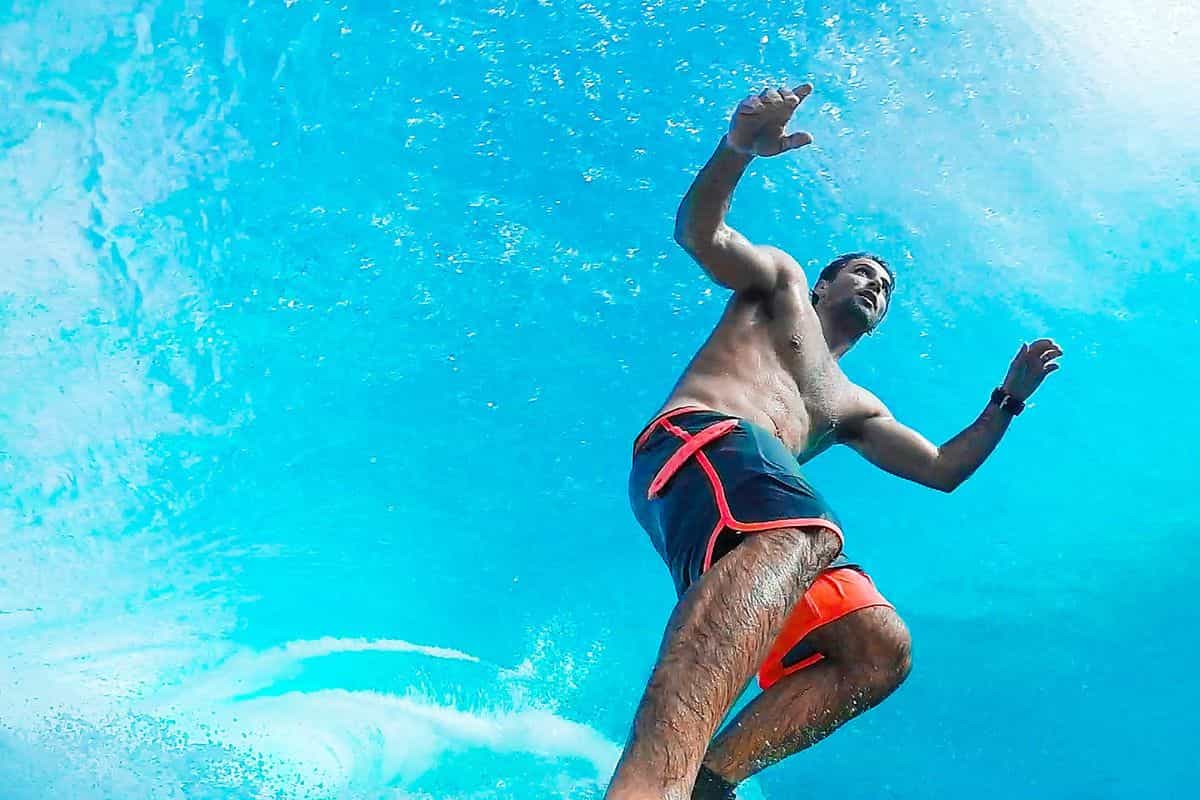
Bruno Santos is part of the new generation of Brazilian surfers that have been “spreading the storm” around the globe. As a tube-riding specialist, Bruno has chosen to focus on a different path and has managed to turn his passion for barrels into a successful career, eventually making an impression on the world of contests as well.
Being part of this new generation of Brazilian surfers that have been “attacking” both the competitive and free surf worlds, you have witnessed a big transition.
In your opinion, what are the key factors that have helped bring Brazilian surfers to this level?
What I believe has taken Brazilian surfers to where they are at the moment is simply a natural evolution. Brazil has always been home to great surfers and I believe that as time has gone by not only is this new generation surfing at a higher level but they also have a lot more support and even a different vision of the sport itself. Support starts early, preparations begin even earlier with young surfers traveling more, and nowadays everything seems more accessible with the internet and other technological advances. A mix of all that, together with talent and grit – which is a strong characteristic of Brazilian surfers – is the reason and I guess that has been reflecting the results, both in the WSL, big wave surfing, free surfing and even SUP, with only female surfing still in need of a “push”. But overall I think it was simply a natural evolution.
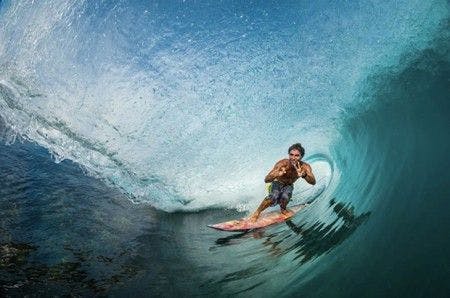
Nowadays having a career as a professional surfer doesn’t necessarily mean that you need to fight for a spot in the WCT. Many talented surfers have been creating a name (and career doing what they love) through free surfing, film projects, etc. What do you think about this expansion of the term “professional surfer”? And which side are you drawn to more: free surfing or competition?
Surfing as a sport has been growing quickly. Like I mentioned before, technological advances have been opening many doors and creating different opportunities. You don’t necessarily have to be a sponsored surfer to compete on the world tour anymore – which in my opinion is the path that gives more visibility and greater financial return, but it’s not the only way. Nowadays many have chosen to “live off surfing” in a different way, through taking ideas and projects seriously in order to entice brands or tv shows to support them, and are managing to build a nice lifestyle and make a living from their passion for surfing.
The question that has to be asked: How do you see the future of Brazilian surfers?
I believe that Brazilian surfers have set a precedent, so now there’s no going back. The long dreamt-of world title has been won, both by Gabriel Medina and Adriano de Souza, so now there’s no saying that Brazilian surfers can’t surf this or that type of wave or that they’re not “complete”. In the years to come I see at least three Brazilians going after the world title every year on the WSL, and I believe it’ll be hard to simply wipe them off the top. Obviously there are many other surfers from different nationalities that are at the same level, but I do believe that the grit that many Brazilians possess (allied with preparation and support) will help them stay up there for quite a while. This new generation is very focused, talented and disciplined, and having travelled a bit with some of them I can say they’re totally focused throughout the event and are there to win.
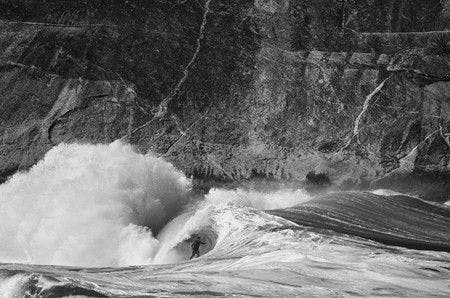
I remember watching a movie a few years ago showing footages of you as a grom surfing your home break, and I only recall seeing barrels! Could you tell us a bit about the waves you grew up surfing and how they helped to shape your style?
The wave I grew up surfing in Itacoatiara, Rio de Janeiro, is extremely hollow and very powerful. Since I started competing I’ve always found it easier in barrelling waves, and most of my best results have been in hollow, heavy waves, with rough conditions. At the same time I’ve found it hard when the waves were smaller and more shifty – which is what I found in the WQS – since the place where I learned to surf didn’t offer such conditions, and instead prepared me better for spots like Pipeline, Teahupoo, Fernando de Noronha, or simply for more punchy waves.
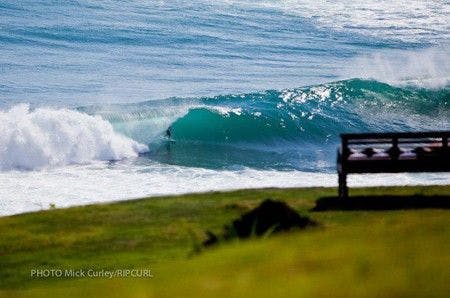
Many associate your name with “barrels”. Is there anywhere in the world where getting barrelled makes you feel more “Bruno”?
I think that I’m not really addicted to surfing, I’m more addicted to getting barrelled. Usually when I’m back home and the waves are too small I don’t even feel the urge to get out there, and I’d rather spend time with friends and family and wait for the swell to pick up – which sometimes worries me. But there are two spots where I struggle to get out of the water, and can surf from the moment the sun comes up until it goes down, which are Desert Point and Teahupoo. It’s an actual need to be in the water and stay inside of the barrel for as long as possible that I can’t explain.
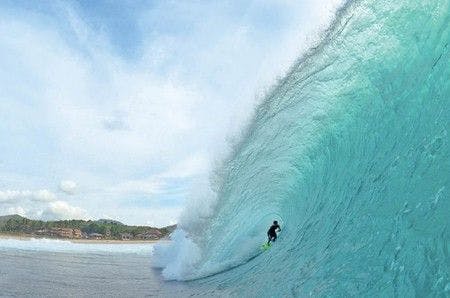
On the same subject of barrels: what matters the most, technique or instinct? Is there any type of specific training you do that focuses on tube-riding?
I believe in any sport practice leads to perfection. Surfing runs along the same lines, but I think that instinct matters even more. I can spend a long time out of the water without getting barrelled, but regardless of how long it has been when I come across good, tubular conditions it feels like I didn’t ever stop getting barrelled at all. It’s a truly instinctive thing, clearly visible in a lot of different surfers that seem to be part of the wave.
Compared to many other spots in the world Brazil doesn’t stand out when it comes to wave quality. Where beach breaks prevail, how do you think so many Brazilians have been doing well in waves considered relatively more challenging?
In Brazil we do lack perfect waves and point breaks, but even so we have some great quality beach breaks, such as Maresias in Sao Paulo or Fernando de Noronha, and the opportunity to travel at a younger age has been helping Brazilian surfers to face different types of conditions and still do well. A good example of that is Kelly Slater and the Hobgood brothers, who grew up in Florida – which isn’t necessarily a place reknowned for high quality waves – but at really young age started traveling to Hawaii, Fiji, and polished their surfing so as to become some of the best surfers in the world.
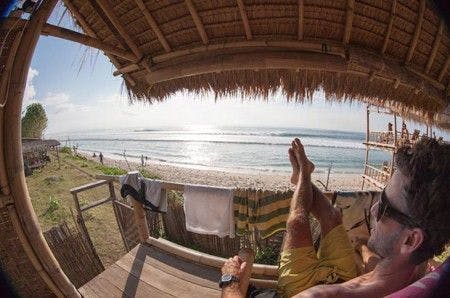
It is still the beginning of 2016. Are there any plans or projects that have been keeping you awake at night?
This year I’m involved in a project for a TV show, taking me around the world in search of the most perfect and heaviest barrels; so I guess that’s the main thing on my list. Aside from that there are a couple of contests that I really enjoy participating in, such as the trials for Teahupoo, but most of my attention is turned to finding the most perfect barrels in the world.
Looking back, as a Brazilian surfer, much has changed since you caught your first wave. Is there any negative side to so many changes or do you see it as something totally positive
Since the moment I caught my first wave until today I’ve only seen positive changes, in every sense. The sport has only been growing when it comes to competition, discovering new waves, equipment, information, and I guess the only thing that has changed for worse are the crowds, which is inevitable due to the increased amount of participants. But apart from that all changes have been for the good.
Technological developments (especially when it comes to surfboards) have been influencing the world of surfing at high speed. Do you believe that such progress walks hand-in-hand with the evolution of surfing, or is getting barrelled with a board shaped ten years ago the same thing as with a board shaped yesterday?
The evolution of equipment and surfboards have allowed for manoeuvres never dreamt before to come true. But when it comes to getting barrelled (spots like Pipe or Teahupoo aside) I believe the influences have been softer. Obviously the developments in materials, shapes and other aspects make it easier to get deeper and stay longer in the green room, but getting barrelled with a single-fin or a retro-fish (even though trickier) is an amazing and completely different experience.
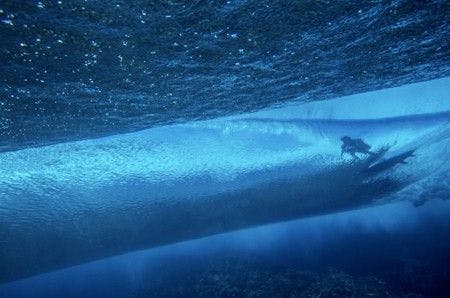
As a human tube-riding machine you’ve definitely crossed the 5000 mark. Is it possible to get tired of such a feeling? In a few words, what do you consider as a true barrel and the sensation of being in the green-room?
I think it’ll be impossible for me to get tired of getting barrelled. I can get tired of surfing, but not being in the barrel. When I see a perfect barrel there’s an energy that emanates and makes me forget about all other needs, even eating or drinking water. The sensation of going through a wave is indescribable, it’s unique. It’s hard to share such a feeling with someone else, and you’ll never have that same feeling again, because regardless of how perfect the waves are, they’re always different. I just know it’s something I’ll never get tired of.
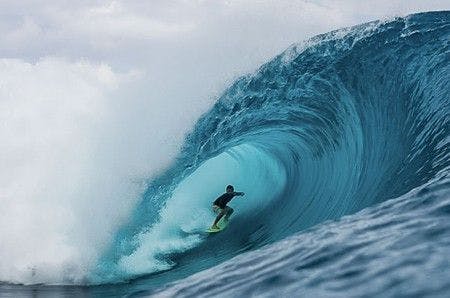
Teahupoo is considered one of the hardest waves in the world to try and tame. Your victory in Tahiti in 2008 must’ve represented a lot. Is it possible to describe this feeling? And did you notice any changes in yourself after the victory?
No doubt my victory in 2008 was the biggest one of my career. It’s funny because the final day was actually the smallest one for the swell, and everything happened so fast that it was all over before I had time to realize. I’ve had more exciting experiences surfing there though, so although winning in 2008 was a big deal it wasn’t the most remarkable moment I have had in Tahiti. As a person I didn’t see any changes in myself, but as an athlete for sure. It gave me projection, confidence and even respect, and was definitely the biggest achievement in my career as a competitor.